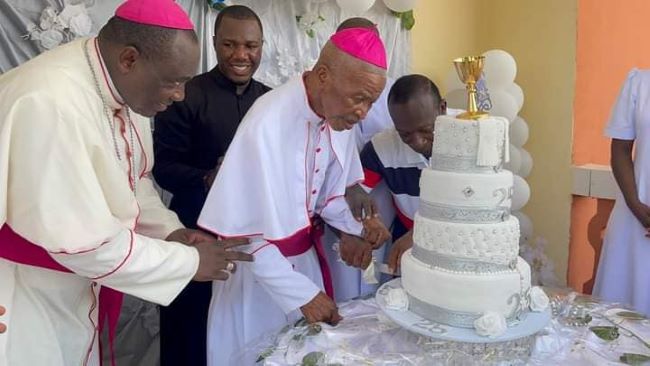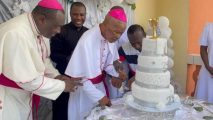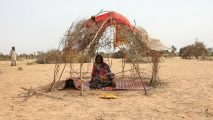Categories
Archives
- April 2024
- March 2024
- February 2024
- January 2024
- December 2023
- November 2023
- October 2023
- September 2023
- August 2023
- July 2023
- June 2023
- May 2023
- April 2023
- March 2023
- February 2023
- January 2023
- December 2022
- November 2022
- October 2022
- September 2022
- August 2022
- July 2022
- June 2022
- May 2022
- April 2022
- March 2022
- February 2022
- January 2022
- December 2021
- November 2021
- October 2021
- September 2021
- August 2021
- July 2021
- June 2021
- May 2021
- April 2021
- March 2021
- February 2021
- January 2021
- December 2020
- November 2020
- October 2020
- September 2020
- August 2020
- July 2020
- June 2020
- May 2020
- April 2020
- March 2020
- February 2020
- January 2020
- December 2019
- November 2019
- October 2019
- September 2019
- August 2019
- July 2019
- June 2019
- May 2019
- April 2019
- March 2019
- February 2019
- January 2019
- December 2018
- November 2018
- October 2018
- September 2018
- August 2018
- July 2018
- June 2018
- May 2018
- April 2018
- March 2018
- February 2018
- January 2018
- December 2017
- November 2017
- October 2017
- September 2017
- August 2017
- July 2017
- June 2017
- May 2017
- April 2017
- March 2017
- February 2017
- January 2017
- December 2016
- November 2016
- October 2016
- September 2016
- August 2016
- July 2016
- June 2016
Featured
 Bishop Francis T. Lysinge @ 25!
Bishop Francis T. Lysinge @ 25!  Understanding the Biya Francophone regime’s support for the Israeli genocide in Gaza
Understanding the Biya Francophone regime’s support for the Israeli genocide in Gaza  Poverty under Biya: Cameroonians embrace Chinese language for brighter futures
Poverty under Biya: Cameroonians embrace Chinese language for brighter futures  Cameroon is broken: Who can fix it?
Cameroon is broken: Who can fix it?  Ethiopia: U.S Senator Cardin Statement on the Killing of Bate Urgessa
Ethiopia: U.S Senator Cardin Statement on the Killing of Bate Urgessa
Most Commented Posts
 4 Anglophone detainees killed in Yaounde
4 Anglophone detainees killed in Yaounde
19 comments Chantal Biya says she will return to Cameroon if General Ivo Yenwo, Martin Belinga Eboutou and Ferdinand Ngoh Ngoh are sacked
Chantal Biya says she will return to Cameroon if General Ivo Yenwo, Martin Belinga Eboutou and Ferdinand Ngoh Ngoh are sacked
13 comments Anglophone Nationalism: Barrister Eyambe says “hidden plans are at work”
Anglophone Nationalism: Barrister Eyambe says “hidden plans are at work”
12 comments The Anglophone Problem – When Facts don’t Lie
The Anglophone Problem – When Facts don’t Lie
12 comments Largest wave of arrest by BIR in Bamenda
Largest wave of arrest by BIR in Bamenda
10 comments
Latest Tweets
Error: access keys missing in Themify > Settings > Twitter SettingsFeatured
-

Indomitable Lions Crisis: FIFA refuses to acknowledge Marc Brys
-

Bishop Francis T. Lysinge @ 25!
-

10 Million Cameroonians lived on less than $1.80 per day
-

Football: Xavi to remain as Barcelona coach
-

Biya regime delays bond sale amid regional market strain
-

Historic agreement between Nigeria and Cameroon to tackle wildlife crime
-

Southern Cameroons refugees in Nigeria receive farm seedlings
© Cameroon Concord News 2024
3, October 2019
The fault lines in Cameroon’s national peace talks 0
The week-long discussions to end fighting between government forces and militias in Cameroon’s English-speaking regions started on Monday, September 30, 2019, in the country’s centralized capital Yaoundé. However, citizens have lingering fears that the peace dialogues won’t put the crisis to rest.
Cameroon leader, Paul Biya, who has ruled the country since 1982, summoned the dialogue on September 10, to resolve a three-year-old insurgency. The conflict has led to the deaths of about 2,000 people and displaced more than 500,000 in Anglophone northwest and southwest regions, according to the United Nations.
Minority English-speaking Cameroonians feel marginalized by the Francophone majority, who say the French-speaking government promotes oppressive policies and laws. The protest movement, led mostly by teachers and lawyers, evolved into a militant separatist movement calling for the secession of English-speaking Cameroon
Netizen Batata Boris Karloff said on Twitter that the talks would “make or break the fractured country:”
Batata Boris Karloff@KarloffBatata
The much talked about Major #NationalDialogue begins in #Yaounde today.
The outcome of the five days talks would either make or break the break the fractured country
38:57 AM – Sep 30, 2019Twitter Ads info and privacySee Batata Boris Karloff’s other Tweets
Separatist and opposition leaders waved aside
Nonetheless, the government-led talks have ignored separatist leader, Julius Ayuk Tabe, who, alongside other members, received a life sentence in jail in August this year.
Tabe heads a movement that is trying to form a breakaway state from mainland Cameroon, called Ambazonia, and movement leaders have openly shown disdain for the conference.
“No Ambazonian will take part in Biya’s charade,” Ayaba Cho, a leading separatist abroad, told Reuters.
Also, the leader of the Cameroon Renaissance Movement party, Maurice Kamto, who was arrested in January this year for orchestrating post-election protests, isn’t at the discussion table. His party has denied attendance until the government releases Kamto.
Vy on Twitter also shared doubts over the dialogues:
Vy@Vy_mbanwie
This is why #SouthernCameroons must be Free! #NationalDialogue of stupidity! “Wishes” NOT “Whishes”. We’ve had effort of the foolishness! @UN Divide this damn Country & #LetMyPeopleGo #ReleaseAbdulKarimAli #FreeAllArrested @UNHumanRights @hrw @CohenOnAfrica
Government-dictated dialogue
Many moderate Anglophones want constitutional changes, with a return to the federal system being key, but the Biya regime doesn’t have that on the agenda:
Instead, the Biya government created eight commissions as part of the peace dialogues that only focus on decentralization, a system put into place by Biya in 1996.
Former presidential hopeful, Akere Muna, who is attending the national dialogues, told Reuters on September 30: “It is farcical to not have a commission to discuss federalism, which is at the core of all of this.”
He further expressed his frustration at the government’s dictatorship of the event on Twitter:
“Sultan Mbombo Njoya (one of Cameroon’s ethnic rulers) calls for limitation on the Presidential term of office to 2x5years and two round Presidential election. The PM (Joseph Dion Ngute who is chairing the discussions) reminds us to stick to the agenda and not to go out of topic.”
For context, French and English Cameroon became one nation in 1961 under a federal system, where the latter had their own autonomy with their own police, government and judicial system. But federalism was abolished by President Biya’s predecessor, Ahmadou Ahidjo in 1972 – creating a united republic which the 86-year-old Biya has strengthened and centralized over the years.
Now, many want that era back, including a man named Martin, who works as a carpenter in Mutengene, a city along Cameroon’s western coast. He declined to give his last name fearing reprisal by government or separatists.
“I don’t see anything coming out of that meeting in Yaoundé. We talked about federalism but it’s not mentioned by [the] government. To me, it is a meeting of [Cameroon People’s Democratic Movement] CPDM supporters,” he told Global Voices on Sunday, September 29 in Buea, while attending a church service.
For Relly Ebini, who works as a cameraman in Buea, a central Anglophone city, he strongly holds federalism will be the best thing out of the discussion.
“I want to believe the discussion will lean on federalism. That is what we Anglophones want and I believe it will put a stop to the crisis,” he told Global Voices on Sunday, September 29.
With so many people displaced, Martin hopes he will one day visit his village in the northwest region again:
“When the crisis started in 2016, I had not gone to my village. It’s been four years now, I haven’t been there because of the conflict,” he said.
Source: Global Voices